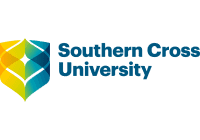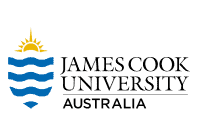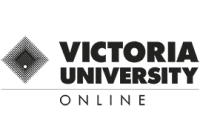Are you considering pursuing an MBA in Australia but don't know where to start? Look no further, as we've got you covered! In this article, we'll provide you with an in-depth guide to Master of Business Administration programs in Australia and what you can expect from them.
To give you a brief overview, MBA programs in Australia are designed to equip students with the knowledge and skills necessary to excel in the business world. With a focus on practical learning, these programs offer a unique combination of academic theory and real-world experience, making them highly valued by employers.
But that's not all; we'll also be exploring some of the top MBA programs in Australia, discussing their unique features, admission requirements, and career prospects. With the help of industry experts and successful MBA graduates, we'll provide you with a comprehensive guide to everything you need to know about pursuing an MBA in Australia.
So, whether you're a recent graduate or a seasoned professional looking to advance your career, this article is a must-read. Join us as we dive into the exciting world of Master of Business Administration programs in Australia!
Quick Links To Online MBA Degree Programs
Southern Cross University
Master of Business Administration (MBA) Online
- 2 years, Part-time
- 8-16 units
- $2,990 per unit, FEE-HELP available
James Cook University
Master of Business Administration Global (MBA Online)
- 24 months, Part-time
- 12 subjects (One subject per each 7-week study period)
- $3,700 per subject, FEE-HELP is available
Victoria University
Master of Business Administration (Online)
- 2 years Part-time (minimum)
- 12 units (7 weeks)
- $3,650 per unit, FEE-HELP available
University Of New South Wales
MBAX (Finance)
- 2-6 years part-time
- Fee: AUD$5,190
- Commencing Terms
Term 1 – February
Term 2 – June
Term 3 – September
What Is an MBA?
Students who complete the requirements for a Master of Business Administration, sometimes known as an MBA, receive not just advanced business knowledge but also advanced business skills as well as real business experience. MBA programmes often educate students on a broad spectrum of business-related subjects, such as accounting, finance, marketing, strategy, leadership, entrepreneurship, and operations management.
MBA programmes are intended to provide students with the information and expertise necessary to be successful in a number of business-related jobs, including general management, consulting, finance, marketing, and entrepreneurship. MBA schools frequently place emphasis on practical, real-world applications of business concepts, with a particular specialisation on problem-solving, critical thinking, and teamwork as core tenets of their curricula.
MBA programmes can be taken in a number of different formats, including those that are completed online, in part-time increments, or even as executive MBA programmes. Full-time Master of Business Administration (MBA) programmes have a normal completion period of two years and are intended for students who wish to devote themselves entirely to their academic pursuits while also making the most of possibilities for professional networking and internships.
MBA programmes offered on a part-time basis are intended for working individuals who wish to maintain their current employment while pursuing their degrees. MBA programmes that are taken online provide students with the flexibility of taking their classes online and can be finished from any location in the world. Executive Master of Business Administration (MBA) programmes are intended for seasoned professionals who wish to improve their leadership abilities and progress further in their careers.
Students who complete the requirements for a Master of Business Administration receive advanced business knowledge, business skills, and real company experience. MBA programmes are designed to prepare students for a number of business-related roles and can be completed in a variety of forms. MBA programmes are also designed to prepare students for a variety of business-related roles.
Benefits of an MBA Degree
Graduates with a Master of Business Administration degree can receive a wide variety of perks, including the following:
- Work opportunities: Possessing a Master of Business Administration degree can broaden one's employment prospects in a range of industries, including general management, consulting, finance, and marketing, as well as entrepreneurship. MBA graduates typically have an advantage over their competitors in the labour market and are in high demand among top employers.
- Earning potential can be significantly increased by acquiring a master's degree in business administration, as MBA graduates often earn greater salaries than those with a bachelor's degree or no degree at all. The Graduate Management Admission Council (GMAC) reports that the starting wage for MBA graduates in Australia is more than $115,000 on average.
- Knowledge and abilities in business MBA schools aim to equip their students with advanced knowledge and abilities in a variety of business-related domains, including finance, accounting, marketing, strategy, leadership, and operations management. This information is transferrable to a range of different business environments, and it can assist graduates in achieving success in the occupations they choose.
- MBA schools frequently offer students the chance to network professionally with programme graduates, industry professionals, and even other students. These contacts may prove useful in the pursuit of employment possibilities, guidance, and mentorship.
- Personal development: MBA programmes can assist students in improving their communication, leadership, and teamwork abilities, which can all contribute to the student's overall growth as a person. Students enrolled in MBA programmes frequently have the opportunity to participate in experiential learning activities, such as case studies, simulations, and consulting projects. These activities give students a chance to apply the knowledge and skills they have acquired to situations that are based in the real world.
In conclusion, obtaining a Master of Business Administration degree can give graduates a wide variety of benefits, such as employment prospects, higher earning potential, advanced business knowledge and abilities, a professional network, and personal growth.
Types of MBA Programs
You have several options to consider while selecting an MBA programme, and these options are based on your requirements and interests.
1. Full-time MBA
Students who intend to study for their degree on a full-time basis are the target audience for a full-time Master of Business Administration programme. Most of these programmes are designed to endure for two years and offer a well-rounded education in management and business. Full-time Master of Business Administration programmes are challenging and call for a large time commitment, but they have the potential to lay a solid groundwork for a successful career.
2. Part-time MBA
MBA programmes offered on a part-time basis are intended for working individuals who wish to get their degree while continuing to be employed. These programmes normally need a longer amount of time to complete than full-time programmes, typically around three years, but they provide more scheduling flexibility. MBA programmes that are completed on a part-time basis are a good alternative for individuals who want to advance their careers but cannot afford to take time off from work.
3. Executive MBA
A programme known as an Executive Master of Business Administration (EMBA) is intended for seasoned professionals who wish to improve their knowledge and abilities in the area of leadership. The normal prerequisite for enrolment in an EMBA programme is a number of years' worth of professional experience. These programmes provide instruction on executive-level decision-making and strategic thinking. These courses are often taken on a part-time basis and can be finished in a span of two years.
4. Online MBA
An online Master of Business Administration programme is a versatile option that gives you the freedom to earn your degree from any location in the world. These programmes are geared towards working professionals who wish to get their degrees without interfering with their regular work schedules and are tailored specifically for them. The curriculum of online MBA programmes is identical to that of on-campus MBA programmes; however, online MBA programmes offer more flexibility in terms of scheduling and location.
MBA Admission Requirements
The requirements for getting into MBA programmes differ from institution to institution and programme to programme. Yet, there are a few requirements that are standard across the board for MBA schools. They may include the following:
- Degree at the undergraduate level: The majority of master's in business administration (MBA) programmes demand that applicants hold a bachelor's degree from a recognised school. The applicant is not required to have a business degree, but they should have a solid academic record.
- Experience in the workplace: Several MBA programmes give preference to applicants who have previous experience in the workplace, particularly in positions of leadership or management. There isn't one set requirement for how many years of job experience are needed, although most programmes require applicants to have at least two to three years of experience.
- Scores on standardised tests: Several MBA programmes require applicants to submit scores from standardised examinations like the Graduate Management Admission Test (GMAT) or the Graduate Record Examination. These tests are examples of standardised assessments (GRE). The verbal, numerical, and analytical capabilities of an applicant are evaluated using these several examinations.
- Recommendation letters: Applicants to MBA programmes are frequently required to submit recommendation letters written by professors or supervisors who can attest to the applicant's academic or professional abilities.
- Statement of purpose or essay: Several MBA schools require applicants to submit a statement of purpose or essay that outlines why they want to get an MBA and how it will help them achieve their career goals.
- An essential component of the application process for some Master of Business Administration (MBA) programmes is the applicant's participation in an interview. This can be done in person or through the use of the internet.
A bachelor's degree, relevant work experience, standardised test results, letters of recommendation, a personal statement or essay, and an interview are often required for admission to a master's degree in business administration programme.
However, particular requirements can be different from one academic institution and programme to another. Students who are interested in enrolling in a certain school should do extensive study on that school's curriculum to determine whether or not they match the standards for admission.
Top MBA Programs in Australia
There are a number of universities in Australia that are on par with the best in the world and provide MBA programmes that are well acclaimed. The following are some of Australia's most prestigious MBA programmes:
- The Australian Graduate School of Management (AGSM), housed under the University of New South Wales Business School, focuses on the following areas of study: The Master of Business Administration programme offered by AGSM is frequently regarded as one of the best MBA programmes available in Australia and throughout the Asia-Pacific region. It provides a versatile programme that may be finished either completely full-time or partially, and it focuses on management, business strategy, and international trade.
- The University of Melbourne's (University of Melbourne's) Melbourne Business School (MBS): The MBS MBA programme has a strong reputation for emphasising leadership development and international business. In addition to its executive MBA programme, it provides a full-time curriculum that students can finish in either one or two years, depending on their preference.
- Monash Business School is located at Monash University. The MBA programme at Monash Business School is well-known for its emphasis on innovation and entrepreneurship, with a heavy emphasis placed on learning through experiential opportunities. The institution provides a flexible curriculum that can be completed either full-time or part-time, in addition to an executive MBA programme.
- The University of Queensland's (UQ) School of Business. The MBA programme at UQ is well acclaimed both for its emphasis on environmentally responsible business practices and for its robust alumni network. It provides both a full-time programme that can be finished in 12 or 24 months and a part-time programme that can be finished in any time frame.
- The Sydney MBA programme is offered by the Sydney Business School, which is part of the University of Wollongong. This programme is well-known for its emphasis on global business and social responsibility and its strong emphasis on experiential learning. In addition to the curriculum for those with part-time schedules, there is also one for those with full-time schedules that can be finished in 16 months.
A few of Australia's most prestigious MBA programmes are listed here. Prospective students should conduct a thorough study of each programme to identify which one caters to both their professional aspirations and personal preferences.
Career Opportunities for MBA Graduates
MBA graduates might choose to work in a wide variety of fields thanks to the extensive number of career prospects available to them. The following are some of the most prevalent career choices made by MBA graduates:
- Management Consulting: Management consulting firms hire MBA graduates for their analytical and problem-solving talents to assist businesses in improving their performance and operations.
- Investment Banking: Investment banks seek MBA graduates for their talents in financial analysis so that they can assist companies in raising money through public offerings or private placements. These skills are necessary for investment banking.
- MBA graduates with a specialisation in marketing have the ability to work in a number of industries, such as consumer goods, healthcare, and technology, to design and manage marketing strategies and marketing campaigns.
- MBA graduates with a specialisation in operations management can work in a range of industries to increase efficiency and cut costs, including manufacturing, transportation, and supply chain management.
- Entrepreneurship: Many people who graduate with an MBA go on to create their own firms or join startup companies as entrepreneurs. They use the information and skills they've gained in the business world to develop and expand their own companies.
- General Management: MBA graduates have the opportunity to work in general management jobs, in which they are responsible for controlling all areas of the operations and strategy of a company.
MBA graduates have access to a wide variety of job options, some of which are included here. The job prospects that are open to MBA graduates will be contingent not only on the graduates' unique interests, capabilities, and experiences but also on the field of work and geographic region in which they seek employment.
MBA recipients frequently discover that their degree affords them the flexibility to pursue a range of various job routes throughout their professional life. This is one of the many advantages of earning an MBA.
How to Finance Your MBA
The pursuit of a Master of Business Administration degree can be a substantial investment, both in terms of one's time and one's financial resources. Your Master of Business Administration education can be funded in a number of different methods, which is fortunate. The following are some of the most prevalent ways:
- Scholarships: Several educational institutions provide financial assistance in the form of scholarships for graduate business students. These scholarships may be awarded to you based on your merit or on your financial need, and they may pay all of your tuition costs or only a portion of them.
- Fellowships: Fellowships, which are very similar to scholarships, are grants given to MBA students based on their merit or financial need. On the other hand, fellowships frequently include additional perks, such as a stipend that can be used to cover daily expenses.
- Employer sponsorship refers to the practice in which an employer will pay an employee's educational expenses or provide financial assistance in exchange for the employee continuing to work for the employer while pursuing an MBA degree.
- The Master of Business Administration degree can be financed through the use of student loans. There is a wide variety of financial aid for students to choose from, including federal as well as private loans. It is essential to research the loan options available to you, including the terms and the interest rates, so that you may choose the option that is most advantageous to you.
- Personal Savings: Another choice for funding your MBA education is to draw from your personal resources. Having said that, it is essential that you give serious consideration to the effect that this may have on your own personal finances.
- Part-time or Online Programs: If you want to save money on your MBA education, you might want to consider enrolling in a part-time or online MBA school rather than a full-time on-campus programme. These programmes enable you to maintain your current employment while earning your degree, which can be an important financial consideration.
It is critical to give serious consideration to both the benefits and drawbacks of each potential method of financing your Master of Business Administration degree before making a decision.
It is essential that you take into account the potential return on investment that your degree could provide, in addition to the potential influence that it could have on your personal finances. When trying to figure out the most effective way to pay for your education, consulting with a financial counsellor or an MBA programme advisor may be beneficial.
Tips for Choosing the Right MBA Program
Selecting the right MBA school is a crucial decision that has the potential to significantly affect both your professional trajectory and your overall level of future success. The following advice will assist you in selecting the most suitable MBA programme for your needs:
- Define your objectives: Before selecting a master's of business administration (MBA) programme, it is crucial to determine your professional objectives and how the programme can assist you in achieving those objectives. Take into consideration the course offerings, areas of specialisation, opportunities for internships, as well as networking events.
- Do some research on the school's reputation: The reputation of the MBA programme you choose to attend can significantly impact your future success. Do research on the program's rankings, alumni network, and reputation among employers in your field to find out how well it fits your needs.
- Take into account the program's physical location: The physical location of the programme is yet another crucial consideration to make. Think about things like the cost of living, job opportunities in the area, and the accessibility of opportunities for networking and internships.
- Consider the class profile of the programme: The profile of the student body in the MBA programme is another key component that should be taken into consideration. Consider a number of aspects, including the size of the programme, the variety of people who enrol in it, the average amount of job experience they have, and the level of education they have attained.
- Examine the school's teaching staff: The calibre of the MBA program's teaching staff is also potentially a significant issue to take into consideration. Have a look at the faculty members' research and publications, as well as their expertise and qualifications, before enrolling in a programme.
- Find out how much the programme costs: The amount of money required to complete the MBA programme is another consideration that should not be overlooked. Examine the tuition, fees, and other costs associated with the degree programme, and think about how you will pay for your education.
- Think about the culture of the programme: The culture of the MBA school is another significant component that should be taken into consideration. Consider aspects such as the student organisations and clubs that are associated with the programme, as well as the values and goals of the educational institution.
When selecting a master's of business administration (MBA) programme, it is crucial to take a range of variables into consideration to ensure that you select the programme that caters to your specific objectives and requirements. Taking the time to investigate and weigh the pros and cons of each programme before making a choice can help you make an educated decision that will put you up for future success.
Conclusion
In conclusion, earning a Master of Business Administration (MBA) degree can be a game-changing step for anyone who is interested in advancing their career in Australia. The MBA is one of the most widely recognised and respected business degrees in the world. An MBA programme provides students with a well-rounded education that prepares them for leadership roles in various industries, as explained in this blog.
An MBA degree provides you with the information, skills, and network necessary to flourish in your chosen area, whether that sector is finance, marketing, operations, or entrepreneurship. An MBA from an Australian institution can be a key to exciting domestic and international job opportunities thanks to Australia's growing economy and strong global business links. These factors make an MBA from an Australian university particularly valuable.
But, before beginning the journey towards obtaining a master's degree in business administration (MBA), it is vital to examine your goals, conduct research on various programmes, and take into consideration a variety of aspects, including cost, location, and the structure of the programme. If you use these steps, you will be able to locate an MBA school that not only meets your professional goals but also prepares you for future achievements.
Now that we've gotten that out of the way, let me ask you a question: have you ever considered doing your MBA in Australia? What are your professional aspirations, and how would earning an MBA help you get closer to achieving them? Please leave your feedback in the comments section below.
Content Summary
- Students who complete the requirements for a Master of Business Administration receive advanced business knowledge, business skills, and real company experience.
- Possessing a Master of Business Administration degree can broaden one's employment prospects in a range of industries, including general management, consulting, finance, and marketing, as well as entrepreneurship.
- Earning potential can be significantly increased by acquiring a master's degree in business administration, as MBA graduates often earn greater salaries than those with a bachelor's degree or no degree at all.
- You have several options to consider while selecting an MBA programme, and these options are based on your requirements and interests.
- Students who intend to study for their degree on a full-time basis are the target audience for a full-time Master of Business Administration programme.
- An online Master of Business Administration programme is a versatile option that gives you the freedom to earn your degree from any location in the world.
- Yet, a few requirements are standard across the board for MBA schools.
- An essential component of the application process for some Master of Business Administration (MBA) programmes is the applicant's participation in an interview.
- A bachelor's degree, relevant work experience, standardised test results, letters of recommendation, a personal statement or essay, and an interview are often required for admission to a master's degree in business administration programme.
- The Australian Graduate School of Management (AGSM), housed under the University of New South Wales Business School, focuses on the following areas of study: The Master of Business Administration programme offered by AGSM is frequently regarded as one of the best MBA programmes available in Australia and throughout the Asia-Pacific region.
- The University of Queensland's (UQ) School of Business is known as The MBA programme at UQ is well acclaimed both for its emphasis on environmentally responsible business practises and for its robust alumni network.
- The Sydney MBA programme is offered by the Sydney Business School, which is part of the University of Wollongong.
- Prospective students should conduct a thorough study of each programme to identify which one caters to both their professional aspirations and personal preferences.
- The pursuit of a Master of Business Administration degree can be a substantial investment, both in terms of one's time and one's financial resources.
- Your Master of Business Administration education can be funded in a number of different methods, which is fortunate.
- The Master of Business Administration degree can be financed through the use of student loans.
- Another choice for funding your MBA education is to draw from your personal resources.
- Part-time or Online Programs: If you want to save money on your MBA education, you might want to consider enrolling in a part-time or online MBA school rather than a full-time on-campus programme.
- It is essential that you take into account the potential return on investment that your degree could provide, in addition to the potential influence that it could have on your personal finances.
- When trying to figure out the most effective way to pay for your education, consulting with a financial counsellor or an MBA programme advisor may be beneficial.
- Selecting the appropriate MBA school is a crucial decision that has the potential to significantly affect both your professional trajectory and your overall level of future success.
- Define your objectives: Before selecting a master's of business administration (MBA) programme, it is crucial to determine your professional objectives and how the programme can assist you in achieving those objectives.
- Do some research on the school's reputation: The reputation of the MBA programme you choose to attend can significantly impact your future success.
- Consider the class profile of the programme: The profile of the student body in the MBA programme is another key component that should be taken into consideration.
- Examine the school's teaching staff: The calibre of the MBA program's teaching staff is also potentially a significant issue to take into consideration.
- Find out how much the programme costs: The amount of money required to complete the MBA programme is another consideration that should not be overlooked.
- Examine the tuition, fees, and other costs associated with the degree programme, and think about how you will pay for your education.
- When selecting a master's of business administration (MBA) programme, it is crucial to take a range of variables into consideration to ensure that you select the programme that caters to your specific objectives and requirements.
- In conclusion, earning a Master of Business Administration (MBA) degree can be a game-changing step for anyone who is interested in advancing their career in Australia.
- An MBA programme provides students with a well-rounded education that prepares them for leadership roles in various industries, as explained in this blog.
- An MBA from an Australian institution can be a key to exciting domestic and international job opportunities thanks to Australia's growing economy and strong global business links.
- These factors make an MBA from an Australian university particularly valuable.
- But, before beginning the journey towards obtaining a master's degree in business administration (MBA), it is vital to examine your goals, conduct research on various programmes, and take into consideration a variety of aspects, including cost, location, and the structure of the programme.
- If you use these steps, you will be able to locate an MBA school that not only meets your professional goals but also prepares you for future achievements.
Frequently Asked Questions
An MBA degree is a graduate-level program that provides students with business knowledge, skills, and career opportunities.
Admission requirements for MBA programs typically include a bachelor’s degree, work experience, GMAT or GRE scores, essays and letters of recommendation, and an interview.
Some of the top MBA programs in Australia include the University of Melbourne Business School, the Australian Graduate School of Management, the University of Sydney Business School, and the Monash Business School.
MBA graduates can pursue careers in consulting, finance, marketing, entrepreneurship, and other industries.
You can finance your MBA program through scholarships, loans, employer sponsorship, and personal savings.






